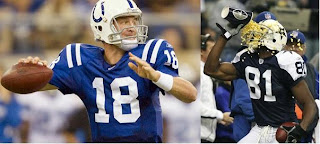
I read something like this from you before... maybe you emailed us an earlier version some months back? Anyway, I understand your point, although not being in HR, I don't totally grasp all the finer points about how organizations typically handle HR. I can only speak from the military perspective.
If I understand your premise, I would agree. I'm slightly biased here, but I believe that the importance of the Chief Petty Officer Mess in the Navy is in its ability to integrate every facet, every department of a command into a single unit, which is what I think you are advocating for HR. Organizational charts are normally North-South, or top to bottom, but the Navy Chiefs intentionally work horizontally within the existing org chart to unify the vision and the work. We look for ways to optimize potential and solve problems by seeking answers outside of the typical institutional "lanes".
As far as stamping a "leadership passport", military commanding officers typically must "do time" in all fields of an organization at some point before taking on that role. For example, you'll find that a Commanding Officer of a Navy warship at one time or another was the weapons officer, admin officer, engineering officer, navigator, etc. It's imperative that they understand EVERY aspect of a ship in order to lead it.
I've seen many changes within my own field, which throughout my career has been called cryptology, intelligence operations, security group activity, information operations, and is now most commonly referred to as information warfare. I have seen a huge shift over the years from being viewed as a completely separate and augmenting field to a fully-integrated Navy discipline. Early in my career, military units would "pick up" an intelligence support team when they headed out the door on deployment. That's not the case any more. Now those same units have fully integrated information warfare teams that are permanently assigned and therefore participate in everything, including preparation, planning, and training as well as post-deployment review and assessment. We use the term "cradle to grave" support.
Now, having said all that, I can't say that the Navy has it all figured out. We still have very traditional roles that restrict officers from reaching that top spot and having anything more than the "seat at the table" that you're referring to. We have "line officers" and then "restricted line officers", also known as "special duty officers". (I'm using quotation marks WAY TOO MUCH in this thing). Line officers are the only ones who can be in command, or the CEO if you will. Restricted line officers are specialized, and therefore considered unqualified for command duty. For example, some officers are specially qualified in engineering, meteorology, medicine, submarines, information warfare, etc. Line officers follow a more generalist career path and spend time in each area (as I've mentioned before). But the thought is that the organization can't function if you don't have SOMEBODY specializing in the different areas. Jack-of-all-trades are nice to have around, but you don't want that guy running your computer network defense division or your accounting division, right?
So, I guess my question is, if you fully integrate HR, do you still need HR professionals? Could someone who hasn't grown up in HR like you have handle your position?
Sorry I'm behind on the blog. I'm working on it. Passion is on deck.



